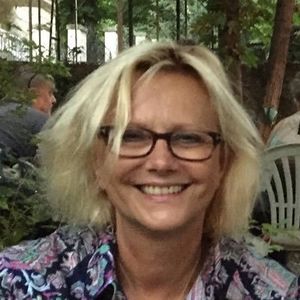Difference between revisions of "Piroska Nagy-Mohacsi"
(added more biography) |
m (typo) |
||
| Line 18: | Line 18: | ||
|start=1 September 2017 | |start=1 September 2017 | ||
|end=}} | |end=}} | ||
| − | |||
}} | }} | ||
'''Piroska Nagy-Mohacsi''' is a [[Hungarian]] academic . She is a director of the [[Institute for Statecraft]]. She was listed as a trustee as of January 2019.<ref>http://archive.ph/dS7zN</ref> | '''Piroska Nagy-Mohacsi''' is a [[Hungarian]] academic . She is a director of the [[Institute for Statecraft]]. She was listed as a trustee as of January 2019.<ref>http://archive.ph/dS7zN</ref> | ||
Revision as of 09:35, 13 January 2021
(academic) | ||||||||||
|---|---|---|---|---|---|---|---|---|---|---|
 | ||||||||||
| Born | December 1957 | |||||||||
| Residence | UK | |||||||||
| Nationality | Hungarian | |||||||||
| Alma mater | Corvinus University of Budapest, George Washington University | |||||||||
| Member of | Institute for Statecraft | |||||||||
Institute for Statecraft director/trustee
| ||||||||||
Piroska Nagy-Mohacsi is a Hungarian academic . She is a director of the Institute for Statecraft. She was listed as a trustee as of January 2019.[1]
Career
Between 2009 and 2015, she was Policy Director of the European Bank for Reconstruction and Development (EBRD), overseeing strategic directions in Eastern Europe, Central Asia and North Africa as well as major policy initiatives. Piroska worked in senior positions as economist for the International Monetary Fund (IMF) between 1986 and 2008 with surveillance, policy advice and program responsibilities in Europe, Africa and Asia. While on leave from the IMF, she was guest lecturer at the Hebrew University of Jerusalem in 1996/97 and Senior Adviser at Fitch Ratings in 2003/4.
Piroska Nagy-Mohacsi has written for the Asian Development Bank[2] and for the elite opinion maker Project Syndicate.[3]She is the author of the book The Meltdown of the Russian State: The Deformation and Collapse of the State in Russia2 (2000).[4]
As of 2020, she is Program Director and Senior Fellow at the Institute of Global Affairs at the London School of Economics.